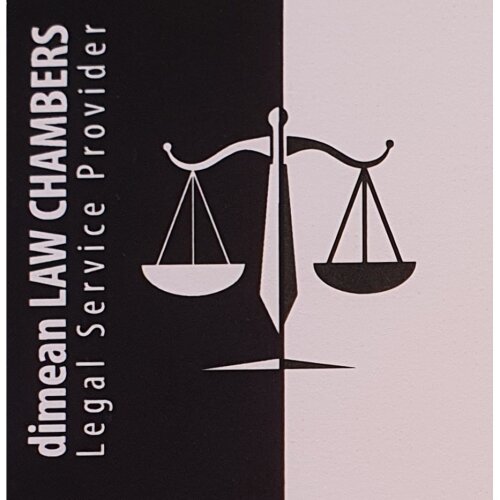Best Family Lawyers in Sri Lanka
Share your needs with us, get contacted by law firms.
Free. Takes 2 min.
Free Guide to Hiring a Family Lawyer
Or refine your search by selecting a city:
List of the best lawyers in Sri Lanka
Sri Lanka Family Legal Questions answered by Lawyers
Browse our 1 legal question about Family in Sri Lanka and read the lawyer answers, or ask your own questions for free.
- Divorce
- When getting divorced, the husband has sold out all the properties belonging to him before finalizing the divorce. Any law like in other countries that the wife to 50% of the properties belongs to the husband as at last date they stayed together?
-
Lawyer answer by SB Law Asia
Our firm (SB Law Asia) is based in Bangkok, Thailand and we would be pleased to assist you if you require legal services in this jurisdiction.
Read full answer
About Family Law in Sri Lanka
Family law in Sri Lanka primarily deals with legal issues that affect family relationships. This includes marriage, divorce, child custody, adoption, and inheritance. The family law system in the country is influenced by a mixture of customary, secular, and personal laws. These laws are drawn from various sources, considering the multi-ethnic and multi-religious demographics of Sri Lanka. Depending on an individual's religious or ethnic background, different laws may apply. For example, the Marriage and Divorce (Muslim) Act applies specifically to Muslims, while the Kandyan Marriage and Divorce Act applies to those from the Kandyan provinces. Furthermore, the General Marriage Registration Ordinance is applicable more broadly to other groups.
Why You May Need a Lawyer
There are several common situations where individuals may require legal assistance from a family lawyer in Sri Lanka:
Divorce and Separation: Navigating the complex procedures and grounds for divorce calls for expert legal advice.
Child Custody and Support: Lawyers can help mediate child custody agreements and ensure proper child support arrangements are made.
Marriage Contracts: Drafting prenuptial agreements or settling matrimonial property rights might require legal intervention.
Adoption: A lawyer can guide you through the legalities of adopting a child, ensuring all the legal requirements are adhered to.
Domestic Violence: Victims can seek protection with the help of a lawyer to navigate the Domestic Violence Act and secure necessary orders.
Inheritance and Succession: A legal expert can assist in drafting wills or dealing with disputes relating to inheritance under respective personal laws.
Local Laws Overview
Family law in Sri Lanka is diverse and accommodates different communities through specific legal frameworks:
Marriage: The Matrimonial Rights and Inheritance Ordinance, Marriage Registration Ordinance, and Muslim Marriage and Divorce Act are the main laws governing marriage.
Divorce: Grounds for divorce vary, with specific requirements under the General Marriage Ordinance and Muslim Marriage and Divorce Act. Fault-based grounds or significant misconduct often needs to be proved.
Child Custody: Matters related to child custody are addressed by considering the child's best interests. Courts take into account several factors, including the parents' situations and needs of the child.
Adoption: Governed by the Adoption of Children Ordinance, adoption proceedings ensure the welfare of the child, with stringent checks and requirements involving court orders.
Domestic Violence: Protective orders and legal recourse are available under the Prevention of Domestic Violence Act, aiming to safeguard victims of abuse.
Inheritance: Inheritance laws can differ based on personal laws applicable to different communities, with the Tesawalamai law, Kandyan law, and the Muslim Intestate Succession Ordinance being prominent examples.
Frequently Asked Questions
What are the main laws governing marriage in Sri Lanka?
The primary laws include the General Marriage Registration Ordinance, Kandyan Marriage and Divorce Act, and Marriage and Divorce (Muslim) Act, each applicable to different community groups.
How can I file for a divorce in Sri Lanka?
Filing for divorce requires proving matrimonial fault under applicable laws. The process generally involves petitioning in district court and could require mediation attempts.
What factors determine child custody in Sri Lanka?
The court primarily considers the child's best interests, including the parents' capabilities, financial stability, and emotional ties with the child.
Is domestic violence legally addressed in Sri Lanka?
Yes, the Prevention of Domestic Violence Act provides a framework to protect victims and gives courts the authority to issue protective orders.
How does inheritance law work in Sri Lanka?
Inheritance laws vary, with personal laws applicable to different communities. There may be statutory rules or customary practices involved, depending on the deceased's ethnic and religious background.
What is the procedure for adopting a child in Sri Lanka?
The process involves compliance with the Adoption of Children Ordinance, which requires a court order. There are both domestic and international adoption regulations to consider.
Can I create a prenuptial agreement in Sri Lanka?
Yes, prenuptial agreements can be drafted, but the enforceability might depend on fairness at the time of enforcement and adherence to national laws.
Are there provisions for alimony or spousal support in Sri Lanka?
Yes, Sri Lankan law allows for maintenance payments post-divorce, decided based on financial needs and earning capacity of the spouses.
What steps can be taken if a marriage is legally invalid?
Invalid marriages can be annulled through legal proceedings by demonstrating grounds such as bigamy, lack of consent, or incapacity.
How are property disputes in marriage handled?
Property disputes are usually settled by courts, considering matrimonial property regimes and relevant personal laws governing the couple's community.
Additional Resources
Here are some valuable resources for individuals seeking family law advice in Sri Lanka:
Ministry of Justice: This governmental body provides important information about civil and family laws.
Legal Aid Commission: Offers free legal assistance and advice, especially to individuals with lower incomes.
Sri Lanka Bar Association: A professional body where you can find accredited lawyers specializing in family law.
NGOs and Women's Rights Organizations: Such as Women in Need (WIN) and Women’s Resource Center, which offer support and assistance in cases of domestic violence and family issues.
Next Steps
If you require legal assistance in family matters, consider the following steps:
Assess Your Situation: Determine if you need legal advice by reviewing your situation and identifying the specific legal issues you are facing.
Contact a Lawyer: Reach out to a family law lawyer or contact the Legal Aid Commission for guidance and representation.
Prepare Documentation: Gather relevant documents related to your case as these will be vital for consultations with legal professionals.
Engage in Mediation: Whenever possible, explore mediation or alternative dispute resolution methods as these might offer quicker and more amicable solutions.
Stay Informed: Keep abreast of legal changes or updates in family law through the Ministry of Justice or other reputable resources.
Remember, obtaining appropriate legal counsel is crucial when navigating family law issues to ensure your rights and interests are adequately protected.
Lawzana helps you find the best lawyers and law firms in Sri Lanka through a curated and pre-screened list of qualified legal professionals. Our platform offers rankings and detailed profiles of attorneys and law firms, allowing you to compare based on practice areas, including Family, experience, and client feedback.
Each profile includes a description of the firm's areas of practice, client reviews, team members and partners, year of establishment, spoken languages, office locations, contact information, social media presence, and any published articles or resources. Most firms on our platform speak English and are experienced in both local and international legal matters.
Get a quote from top-rated law firms in Sri Lanka — quickly, securely, and without unnecessary hassle.
Disclaimer:
The information provided on this page is for general informational purposes only and does not constitute legal advice. While we strive to ensure the accuracy and relevance of the content, legal information may change over time, and interpretations of the law can vary. You should always consult with a qualified legal professional for advice specific to your situation.
We disclaim all liability for actions taken or not taken based on the content of this page. If you believe any information is incorrect or outdated, please contact us, and we will review and update it where appropriate.
Browse family law firms by service in Sri Lanka
Sri Lanka Attorneys in related practice areas.
Browse family law firms by city in Sri Lanka
Refine your search by selecting a city.

















